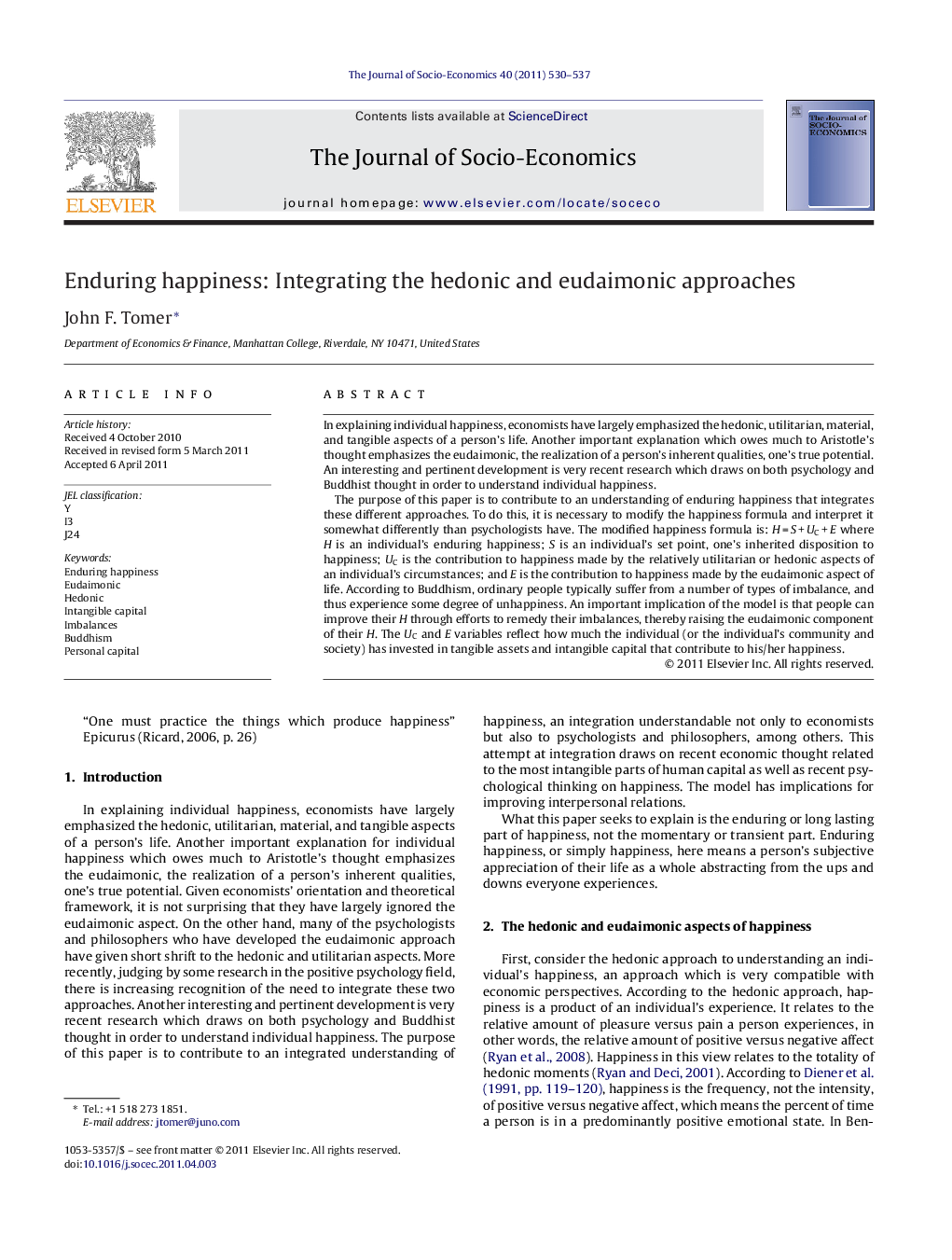| کد مقاله | کد نشریه | سال انتشار | مقاله انگلیسی | نسخه تمام متن |
|---|---|---|---|---|
| 971301 | 1479544 | 2011 | 8 صفحه PDF | دانلود رایگان |

In explaining individual happiness, economists have largely emphasized the hedonic, utilitarian, material, and tangible aspects of a person's life. Another important explanation which owes much to Aristotle's thought emphasizes the eudaimonic, the realization of a person's inherent qualities, one's true potential. An interesting and pertinent development is very recent research which draws on both psychology and Buddhist thought in order to understand individual happiness.The purpose of this paper is to contribute to an understanding of enduring happiness that integrates these different approaches. To do this, it is necessary to modify the happiness formula and interpret it somewhat differently than psychologists have. The modified happiness formula is: H = S + UC + E where H is an individual's enduring happiness; S is an individual's set point, one's inherited disposition to happiness; UC is the contribution to happiness made by the relatively utilitarian or hedonic aspects of an individual's circumstances; and E is the contribution to happiness made by the eudaimonic aspect of life. According to Buddhism, ordinary people typically suffer from a number of types of imbalance, and thus experience some degree of unhappiness. An important implication of the model is that people can improve their H through efforts to remedy their imbalances, thereby raising the eudaimonic component of their H. The UC and E variables reflect how much the individual (or the individual's community and society) has invested in tangible assets and intangible capital that contribute to his/her happiness.
► A person's happiness, according to a modified happiness formula, is determined by the individual's (1) inherited dispositions, (2) hedonic or utilitarian circumstances, and (3) the eudaimonic (realization of human potential) aspect of life.
► These three determine the individual's happiness capacity or potential which makes possible flows of enduring happiness.
► The hedonic/utilitarian contributors to happiness include both various types of tangible and intangible capital that the individual has invested in as well as the person's social status and the functioning of the economy in which the person lives and works.
► An individual's eudaimonic happiness is determined by the degree to which the person has realized his/her human potential, experiencing high life satisfaction and flourishing that are the result of efforts to overcome mental imbalances (suffering).
► An important implication of the model is that individuals can improve their enduring happiness by making appropriate investments in intangible capital that raise the hedonic or eudaimonic part of their happiness capacity.
Journal: The Journal of Socio-Economics - Volume 40, Issue 5, October 2011, Pages 530–537